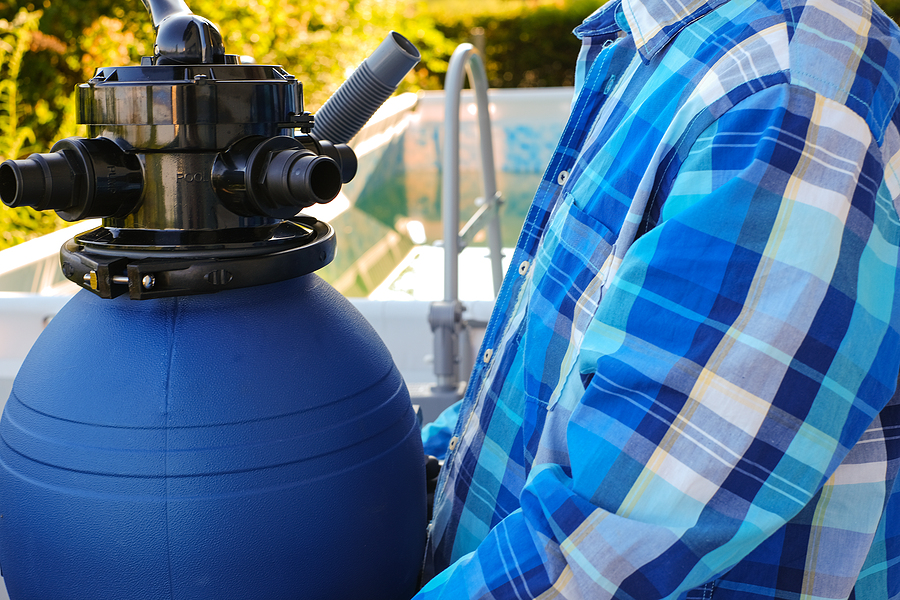Is it Time For A Swimming Pool Inspection? Let’s Find Out
Summer is right around the corner, which means swimming pools must be ready to provide countless hours of fun this season. Whether you’re looking forward to hundreds of swimmers visiting your commercial facility or just spending a fun day out in the pool with your family, it’s important to make sure that your swimming pool is safe and properly maintained. Even if there are no visible issues, we recommend getting a swimming pool inspection before summer begins.
What Is A Swimming Pool Inspection?
During a swimming pool inspection, a certified pool inspector will identify operational issues, damage, or potential hazards. They will advise you of the options available to rectify any identified issues and to meet code compliance. Additionally, the inspector will provide you with an in-depth report that includes thorough feedback and information about any equipment that may need repair or replacement.
How Do You Know You Need One?
Commercial facilities should do a thorough inspection prior to opening for the season in conjunction with the state inspection. Then, daily safety inspections should be performed. It is recommended for new homebuyers with pools to have an inspection performed. Sellers can even consider one to determine what may be wrong with the pool prior to selling so any discrepancies can be repaired to prevent having to credit the buyer. Also, residential pools should be inspected for safety on an ongoing basis. There are a few warning signs to look out for which may dictate the need for an inspection.
Structural Damage
If you see any cracks in the pool’s liner or leaks in the cement or plaster, it’s definitely time for a swimming pool inspection. A professional will be able to provide you with options to best repair any damage to your pool.
Electrical Issues
Be on the lookout for burnt-out underwater bulbs, missing circuit interrupters, or improperly installed junction boxes. These issues need to be addressed right away to avoid potential harm or further damage.
Hazards
Decking issues can present trip hazards. Diving boards and slides need to be installed properly and securely. Water chemistry and algae issues can lead to slipperiness. A swimming pool inspection will be able to identify such unsafe conditions.
Equipment
Bonding between a pool and all the metal components is very important, and required by code. If something is not properly electrically bonded and grounded, a user may become shocked. Also, don’t forget about the pool ladders, pool fencing, and light surrounding the pool area within five feet.
What Happens During A Swimming Pool Inspection?
During an inspection, the inspector will assess mechanical, structural, and electrical components as well as safety issues and water chemistry. First, they will check the basics, including the type of pool you have, age, and size. This information will help them determine the local and manufacturer safety regulations to abide by.
Mechanical issues include the operations of pumps, filters, heaters, chemical feeders, valves, and gauges. An inspector will make sure that these items are operating, not leaking, and properly sized.
Structural concerns include inspecting if the surface is gunite, patined, vinyl liner, or fiberglass. They will be checked for cracks, etching, and staining. Surfaces can be largely affected by imbalanced water chemistry and chemical abuse which can lead to bleaching. Tiling, coping, and expansion joints will be assessed to determine whether they are secure and intact. Decking components will be inspected for settling, drainage issues, and cracks.
Electrical components include the electrical bonding and grounding, GFCI outlets, timer boxes and controls, switches, equipment wiring, and pool lights. When it comes to electrical components with swimming pools, state, building, or local code dictates their operation. An inspection should ensure they are all in compliance.
Water chemistry should be tested during an inspection. If the pool is in a closed state or there is severe water clarity or algae issues, test results would likely be irrelevant. Having properly balanced water is optimal for pool equipment, pool surfaces, and bathers.
Are Your Ready For A Swimming Pool Inspection?
If you’re ready to get your swimming pool inspected before the start of swimming season, contact Pool Operation Management today. Our local experts will be able to inspect your residential or commercial pool and provide you with the solutions you need. We provide pool maintenance services throughout Ocean and Monmouth County NJ. Get started today!







